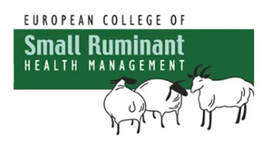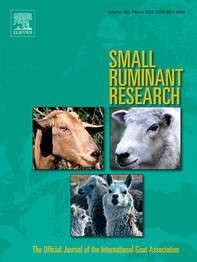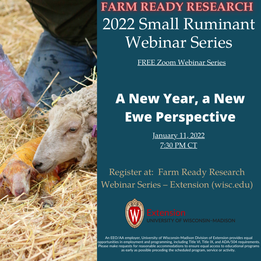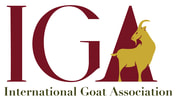|
Dear PPR GEP Supporters and Members of the PPR GREN
I am pleased to inform you that the next talk in our PPR Stakeholder Series will be given by GALVmed on January 13th, 2023, 11:00-12:00 CET. A registration link will be sent closer to the time, but we hope you can block this date in your calendars in order to join us then. Title: New Vaccine and Market Development for Small Ruminant Vaccines at GALVmed Authors: Steve Wilson, Gwynneth Clay, Enrique Hernandez-Pando, Carolin Schumacher Summary: Sheep and goat populations around the world have been steadily growing and represent an increasingly important agricultural asset, particularly for the rural population in low- and middle-income countries. Despite this trend, animal health products, especially vaccines for small ruminants, are largely missing from animal health product portfolios available to small-scale livestock producers in Africa and South Asia. GALVmed has been working with commercial partners to fill these gaps and to provide to the market new mono- and multivalent vaccines addressing Brucella melitensis, CCPP, SGP and PPR. We will provide an update on ongoing vaccine development work and elaborate on the barriers to market that companies encounter when attempting to provide comprehensive solutions to assist small-scale livestock producers in managing small ruminant health in LMICs. Best regards Camilla, on behalf of the PPR Secretariat
0 Comments
escrito por Diana Camila Mogollón y Román Castañeda
La seguridad alimentaria es una de las prioridades del gobierno nacional y se han establecido políticas que la respaldan, e.g. CONPES social 113 de 2008 y el Plan Nacional de Seguridad Alimentaria y Nutricional (PNSAN) 2012 – 2019, siendo las producciones pecuarias un eslabón importante de la cadena de soluciones para garantizarla. La producción de ganado ovino-caprino es una de las actividades más tradicionales en el mundo, demostrado ser una alternativa a las producciones convencionales, dada la adaptabilidad que poseen estas especies a las condiciones de áreas secas y montañosas, así como a diversos escenarios geográficos de nuestro territorio nacional. Los sistemas de producción ovino-caprinos son en general doble propósito aportando tanto carne como leche y sus derivados, además de la lana, la cual es un producto muy valioso en la economía familiar. Sheep milk: A pertinent functional food
Arpita Mohapatra, Ajay Kumar Shinde, Raghvendar Singh Abstract Modern human diet and changes in lifestyle are emerging as a challenge in developing countries resulting to endless ailments. Thus, in modern spectra of human health, bioactive foods play a pivotal role. Under the umbrella of food and nutrition security, functional dairy foods have become the need of the hour. Sheep milk is one of the functionally active dairy foods and it is also considered as nutritional powerhouse. The beneficial role of sheep milk results from its fatty acid, immunoglobulin and non-immune protein contents. In human gut, milk proteins turn into excellent source of bioactive peptides with antioxidative, antimicrobial, antihypertensive, immunomodulatory and antithrombotic role. It is also used in anti-ageing formulations and cosmetic soap preparations to soothe psoriasis and skin eczema like chronic conditions. The unique physicochemical and biochemical properties of sheep milk also include prebiotics and probiotics which make it perfect functional food for human health promotion and disease risk reduction. The milk from Indian sheep is relished by the shepherds and their households. They claim that it has many health benefits, but it is an untapped area by the Indian researchers. The major challenge in Indian prospect is non availability of dairy sheep breed, but their milk functional potential cannot be ignored. This review is focused on worldwide work done on sheep milk for its unique functional characteristics. Keywords Sheep milk; Milk composition; Functional food; Bioactive peptides READ MORE REPORT: XXI Middle-European Buiatrics Congress, ECSRHM Annual Conference and General Meeting6/27/2022  The XXI Middle-European Buiatrics Congress was held from May 19 to 22 at the Hotel Anders in Stare Jabłonki, north-eastern Poland, near the city of Olsztyn. The European College of Small Ruminant Health Management (ECSRHM) organized the general meeting and held an annual conference as part of this gathering.  The organizing committee included Prof. Emilia Bagnicka from the Institute of Genetics and Animal Biotechnology Polish Academy of Sciences, Prof. Jarosław Kaba, Dr. Marcin Mickiewicz, and Ms. Zofia Nowek from the Division of Veterinary Epidemiology and Economics, Institute of Veterinary Medicine, Warsaw University of Life Sciences, and Dr. Adrian-Valentin Potârniche from the Faculty of Veterinary Medicine, University of Agricultural Sciences and Veterinary Medicine Cluj-Napoca Romania. On May 20, the ECSRHM General Meeting officially began with a visit to Mrs. Helena Wróblewska’s farm in Kierzliny. She described the history of her herd, which consisted of roughly 300 dairy goats. She also spoke about the farm’s daily schedule, manners, frequency of milking, and conditions for the welfare of the animals. Following the introduction, participants tasted products made by Mrs. Wróblewska, including milk, yogurt, various types of goat cheese, and some meat products. They also toured the facility to see the equipment used to make these products.  Contribution of small ruminants to food security for Ethiopian smallholder farmers Volume 184, March 2020, 106064 Hiwot Desta Wodajo, Biruk Alemu Gemeda, Wole Kinati, Annet Abenakyo Mulem, Anouka van Eerdewijk, Barbara Wieland Abstract This study investigates how and to what extent arguments related to food security influence preference of livestock species for women and men. Data was collected in four regions of Ethiopia through 92 focus group discussions (FGD) in communities where small ruminant production is common, Using a gender sensitive study designs, 23 FGDs were held separately with men, women and youth (male and female), and through a household survey involving 217 male and 212 women. Qualitative analysis was conducted to extract reasons given to explain the importance of livestock. Reasons related to food security were mapped to the four dimensions underpinning food security—accessibility, availability, nutritional value and stability. All FGDs considered sheep the most important livestock species, followed by cattle, with women allocating higher scores to sheep than men. All four dimensions of food security came up in statements explaining the importance of species but with variations across species. Interestingly, food security related arguments were most prevalent for goats followed by poultry. Of reasons given by women concerning the importance of goats, 78 % were related to food security with all four dimensions represented, and 52 % for poultry with two dimensions (availability and nutritional value). Answers from men especially had a stronger focus on economic reasons directly linked to income generation. Nevertheless, 64 % of men’s arguments for goats were related to food security. For sheep however, women only scored higher for arguments related to availability. When investigating purpose of small ruminant production at household level through a household survey, the importance of small ruminants for food security were confirmed; however, gender differences were less apparent. Being able to sell animals at short notice was the main reason for keeping small ruminants for both women and men followed by meat and milk for home consumption. Women’s argument for prioritizing selling were accessibility. For men, key arguments for selling were related to availability. For meat and milk their nutritional value was an important argument. Comparing agroecologies, accessibility (selling) was ranked top in highland areas and nutritional value (milk) was most important in lowland areas. In conclusion, this study provides much needed evidence on how small ruminants contribute to different dimensions of food security and are promising entry points targeting women to improve food and nutritional security by providing adequate animal source foods in a household. To read the entire article, visit SRR  Farm Ready Research is Extension’s agriculture winter webinar meeting series for farmers and ag professionals. Learn the most up-to-date information on topics from dairy and livestock production to forage and farm management. Tuesday, January 11, 7:30-8:30pm A new year, a new ewe perspective Todd Taylor, the University of Wisconsin-Madison Sheep Research Program Manager for the Arlington Agricultural Research Station Sheep Unit, will discuss the most complex sheep on the farm, the ewe. As the ewe moves through the production cycle, her needs change. Join Todd as he covers productive ewe management during a typical year to maintain her useful contribution as part of the flock for many years. Tuesday, February 8, 7:30-8:30pm Strategic and cost-effective mineral nutrition in sheep Dr. Whit Stewart, Assistant Professor and Extension Sheep Specialist for the University of Wyoming, will discuss the factors that help producers achieve more returns from their mineral nutrition program. Accounting for seasonal changes in mineral content of basal diets, changes in requirements across stages of production (maintenance to lactation), and breed differences in mineral requirements can help us fine-tune the money spent on a mineral program. Additional management factors such as reducing variable consumption and using soil geochemistry in your region to help overcome deficiencies will also be discussed. Time for questions and answers will be provided. The organizers of the International Sheep Veterinary Conference are holding a Virtual Meeting in November 23-25, 2021. Abstracts are still being accepted with the deadline extended to July 15. This is a great opportunity to present your research, case studies, etc. to an international audience and attend a scientific meeting devoted to sheep health research without leaving your office!
Visit these links for more information on the International Sheep Veterinary Association and the 2023 ISVC to be held in Seville, Spain, March 6-10. https://www.isva-virtual2021.com/ http://www.intsheepvetassoc.org/international-sheep-veterinary-association https://isvc2023.com/ Dear colleagues, We are happy to announce that the abstract submission to the ISVA Virtual Meeting - International Sheep Veterinary Association (23rd-25th November 2021), is now open. Please visit the Meeting website and submit your abstract. You are kindly asked to be aware of the important dates. Join us virtually for a successful ISVA Meeting! Main Topics
Important dates to remember
We would like to thank you in advance for your participation and we remain at your disposal for any further information you may need.
Stay healthy and ‘see’ you at ISVA2021! TECHNICAL SECRETARIAT C/Marià Cubi, 4. - Pral. | 08006 Barcelona (SPAIN) Tel. +34 932.388.777 www.isva-virtual2021.com [email protected] from Maryland Extension Small Ruminant Program
Last spring, it was reported that ivermectin had efficacy (in a laboratory setting) against the coronavirus that causes Covid 19. Ivermectin is an anti-parasitic drug for animals. Ivomec® drench is FDA-approved for use in sheep. Ivermectin also has approved uses for humans. After the announcement, some people started using ivermectin to self-medicate. In some countries, a “black market” emerged for ivermectin. In the US, ivermectin started disappearing from the shelves of farm stores. Many health officials oppose the use of ivermectin to treat Covid. Others advocate for its use and have used it to treat Covid patients. The appeal of ivermectin is that it is widely available and cheap. It is also usually well tolerated. Dear colleagues,
We would like to inform you that the 10th International Sheep Veterinary Congress (ISVC) that was scheduled to be held in 2022 from September 19th to 23rd, in Seville, together with the 5th Congress of the ECSRHM, will be delayed six months, to March 6 to 10, 2023. As it is known, the ISVC is being organized by the Spanish Society for Sheep and Goat Production (SEOC). The organizing committee has been working hard for several years in order to perform a successful conference at the organizational, content (scientific, cultural and recreational aspects) and attendance (delegates and speakers) levels. The reason that has led us to make this decision has been the postponement of the 31st World Buiatrics Congress (WBC) 2021-MADRID, to September 4-8, 2022. The situation caused by the COVID-19 pandemic has forced the organizers (the Spanish Society ANEMBE) to postpone the conference to September 2022. As we said before, we would like to have a successful ISVC congress, and as you know, although the WBC is a congress eminently dedicated to cattle, it also has a section dedicated to small ruminants. The WBC is an event with which we share delegates, speakers and members of the Scientific Committee, so it is likely that by holding both events at such close dates, many potential participants, would be forced to choose between the two congresses, negatively affecting both the number of attendees (delegates) and the quality (speakers). We also share sponsor companies and institutions, so holding both congresses in the same year and in the same country, would negatively affect their financial support to our congress. For these reasons, after taking into account the opinions of the members of the Organizing and Scientific Committees of the ISVC-Seville, and obtaining the ISVA and ECSRHM approvals, we considered postponing it to March 2023 to be the best option. If this postponement could cause inconvenience to any delegate, we sincerely apologize on behalf of all the organizers. We also want to communicate, that we have decided, together with the ISVA, to organize a virtual meeting from 23rd to 25th November 2021 of which we will inform you soon. Looking forward to meeting all you in March 2023 in Seville!! Yours sincerely, Jesse Barandika & María J. Alcalde Presidents of the Organizing Committee ISVC 2023 website: https://isvc2022.com/ |
IGA Blog
The International Goat Association promotes goat research and development for the benefit of humankind, to alleviate poverty, to promote prosperity and to improve the quality of life. Archives
May 2024
Categories
All
|
|
International Goat Association
2516 Millbrook Rd., Little Rock, AR72227 USA email: [email protected] -454-1641 |



 RSS Feed
RSS Feed